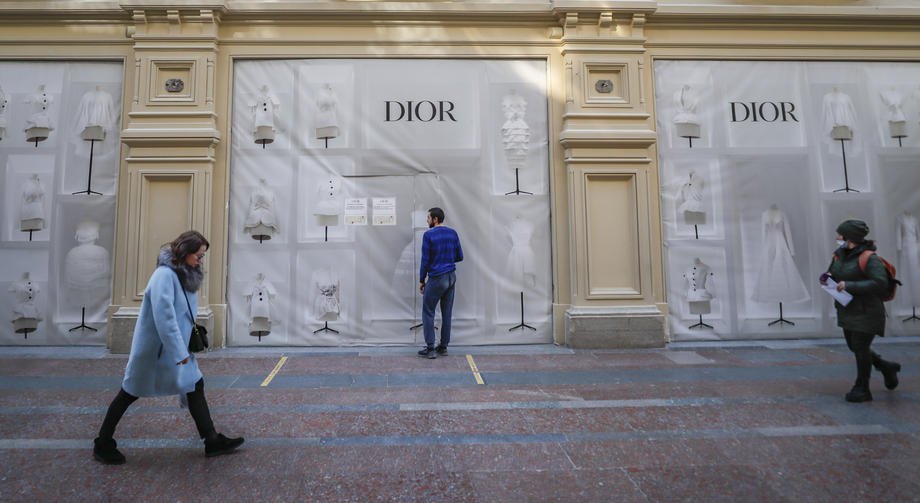
According to the Yale School of Management, more than 400 companies announced the restriction of business ties with russia during the first month of the war.
But for some companies money doesn’t stink, even if it’s made at the cost of murder. This applies to companies that still remain in russia and do business as usual. Others have only issued some vague statements. At least 107 companies just lied about their exit.
To understand their motivation, logic and potential actions, we must look into the most striking examples.
METRO, Leroy Merlin, Auchan-Retail
Everyone talks about these three retailers as everyone sees these hypermarkets in their cities. Since the beginning of the war, a drama unfolded in each of these companies and was widely covered in the media. The Ukrainian office took a patriotic stance and demanded an exit from the russian market, while the central offices made treacherous statements and even threatened Ukrainian units.
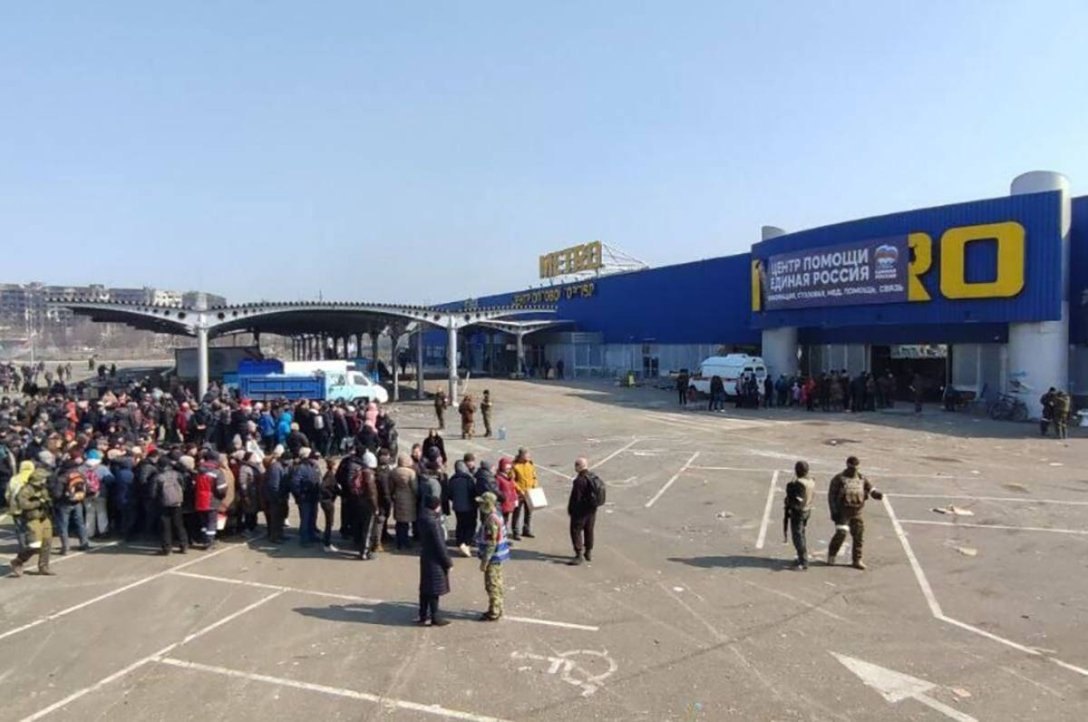
The German retailer METRO, which has already ignored the second protest in Dusseldorf, is a striking example. The company didn’t reconsider its position even when activists brought the coffin to its headquarters — a clear hint of what exactly the company is financing with its taxes in russia. Instead, METRO's top management is threatening the Ukrainian office to cut off supplies due to pressure to leave russia.
METRO justifies its position by saying that they do not want “10,000 employees in russia to lose their jobs, and the sanctions imposed by the civilized world in response to russia’s aggression should affect the country's leadership and its economy, not the population."
The reason is actually trite: money. The russian division used to grow the fastest and was the most profitable for the company. Last fiscal year, it accounted for 10% of the group's revenue and 70% of operating profit (3bn dollars). Even the fact that ‘United Russia’ opened its branch on the premises of the company's store in destroyed Mariupol, wasn’t a good enough reason for the management to lose its russian profits.
A similar situation with Leroy Merlin and Auchan-Retail. Both are owned by the French holding company Association Familiale Mulliez and bring in 4bln dollars and 3.5bn dollars per year, respectively. This price is enough for the company to forgive the russians for the store facilities destroyed by their missile.
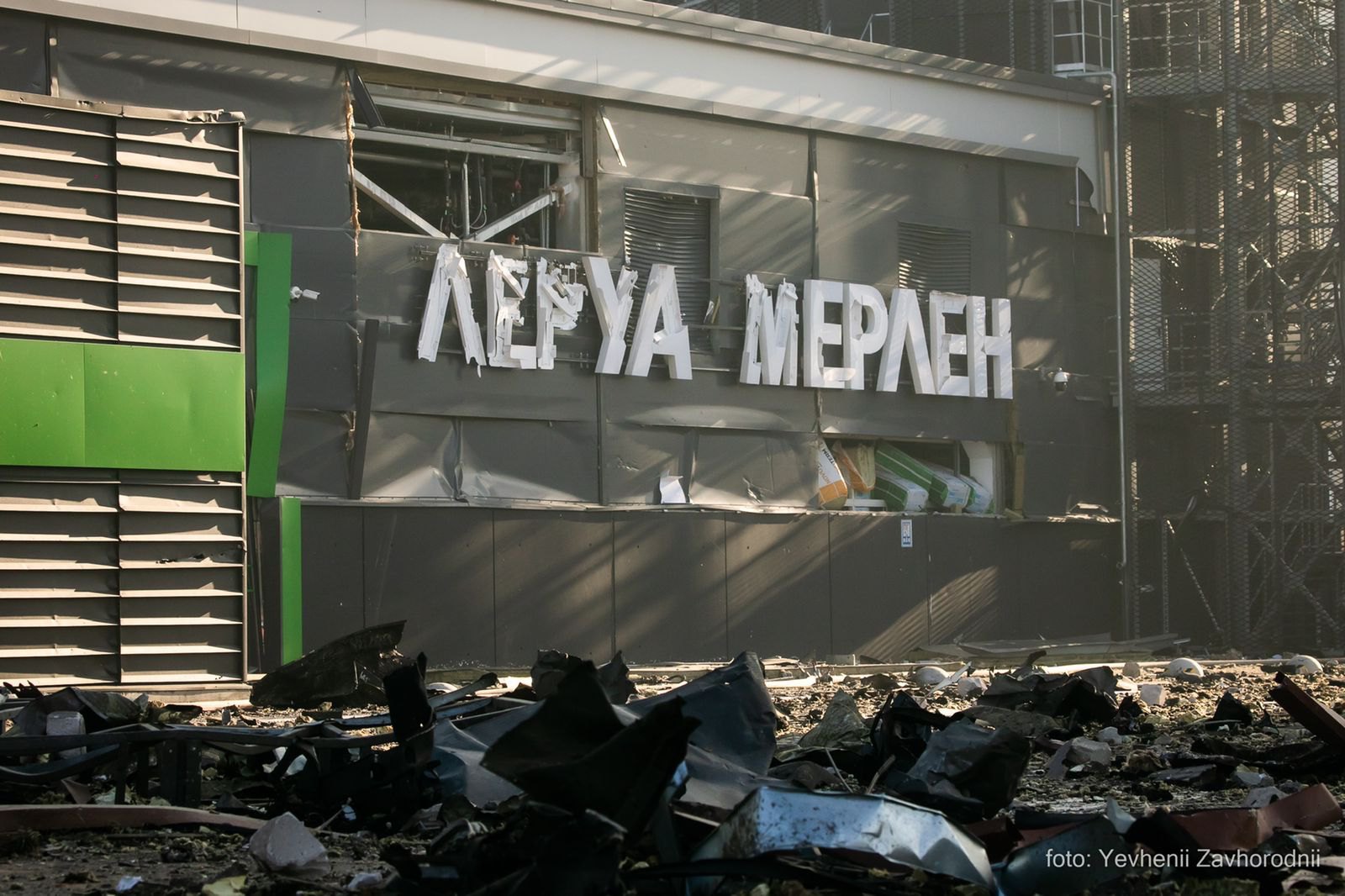
The russian market is much more profitable for these companies than the Ukrainian, where, in addition to the problems of war, there are strong competitors such as Epicenter, Nova Liniya and Fozzy. Therefore, money is above any moral guidelines.
Eastern airlines: Emirates, Turkish Airlines, Qatar Airways
As the war began and sanctions started to be imposed, the russian air transportation market became a desirable place for Eastern airlines. There are several reasons for that. The first is that Europe, Canada and the United States have closed the skies to russian planes. The second is that international lessors have begun withdrawing their aircraft from russian carriers and arresting those that have left the country. Third, russian airlines have suffered significant problems due to reduced flights and the inability to even obtain parts for aircraft repairs.
That is why, the typical response of Eastern airlines to pressure regarding their cooperation with russia is like that of the President of the Emirates: "The people of Russia should not be the target of sanctions." There are also other arguments about humanitarian aid.
The situation is clear as these companies have simply increased their profits significantly, while the airports of Dubai, Doha and Istanbul are used as the only possible connection points for the russians.
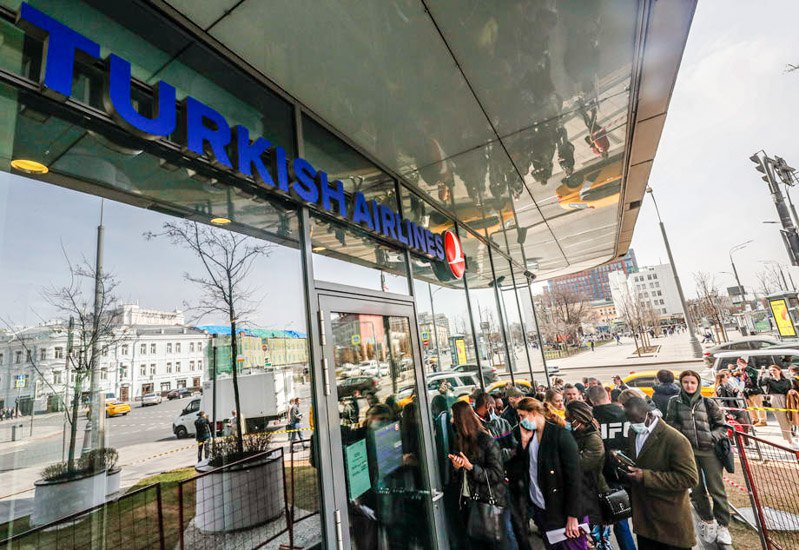
The only hope is for secondary sanctions and the position of lessors, insurers and aircraft manufacturers regarding the use of their aircraft in the airspace of the aggressor country.
Foreign banks: Société Générale case
One of the most complicated cases is the exit of banks from the Russian market. First of all, unlike the office of an IT company, banks have a lot of responsibilities. Their immediate exit means the millions of loans would be gifted to the russians and russian companies.
Secondly, Russia has a strong regulator — the Central Bank of Russia, which makes the exit of any bank a long and fairly regulated process.
Although many foreign banks don’t make significant profits in russia and the market itself is not a priority for them due to the dominant position of local state-owned banks, the difficulty of withdrawal plays a key role.
Even under such conditions, some foreign banks dared to announce the halt of operations and potential exit from the market: Deutsche Bank, CitiBank. UniCredit, Raiffeisen Bank and smaller players have at least announced their intention to consider a full exit from the Russian market as an option (and are already waiting for rallies of Ukrainians at their headquarters).
However, there are financial institutions that refuse to leave Russia. These include the French Société Générale with a net exposure of 20bn dollars and 2.8% of revenue in the russian market.
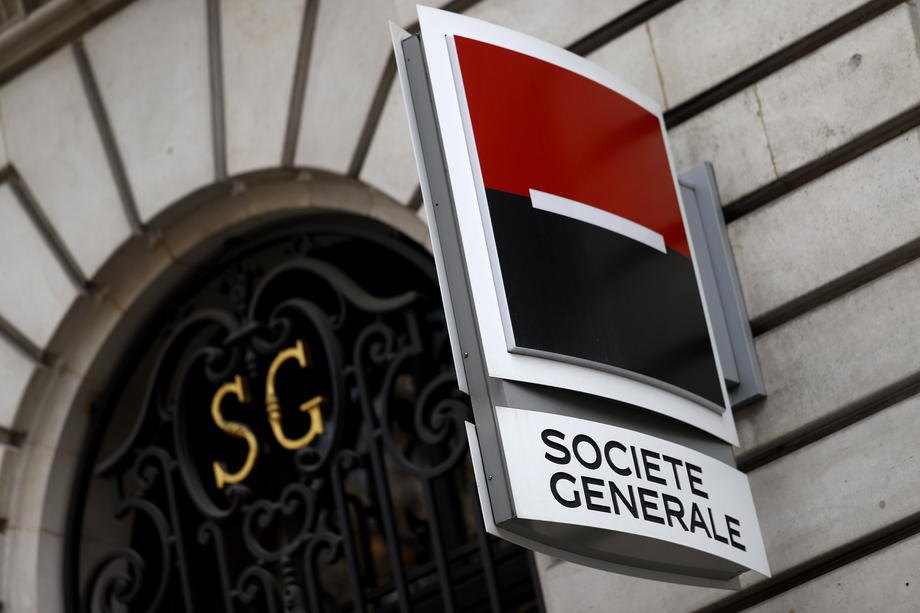
In addition to assets and income, the position of the French political leadership also played a role for the Société Générale. According to the Financial Times, French officials are defending the presence of the Société Générale in russia.
At a meeting held in early March by French President Emmanuel Macron with the Ministry of Finance and top management of a number of French companies, including the bank, the authorities assured that they would not put pressure and won’t urge them to leave the aggressor country as soon as possible.
Economic feasibility and political support don’t motivate companies to make difficult and painful business decisions.
Tetra Pak packaging manufacturer
Usually, the withdrawal of one international company causes problems for others from different industries. For example, producers of dairy and other liquid food products couldn’t supply their goods in stores due to the lack of packaging after the Norwegian supplier Elopak left the russian market.
But some companies only pretend to leave russia, therefore no supply chain suffers. The Swedish-Swiss packaging manufacturer Tetra Pak is among such liars who are sitting on the fence.
From the very beginning of the war, the company stated that it would not leave the russian market. In its later releases, it said that its “activities are limited to essential foods such as milk and baby food.” The statement made it clear that the company continues to work for russian consumers and support operation of factories, but with some restrictions.
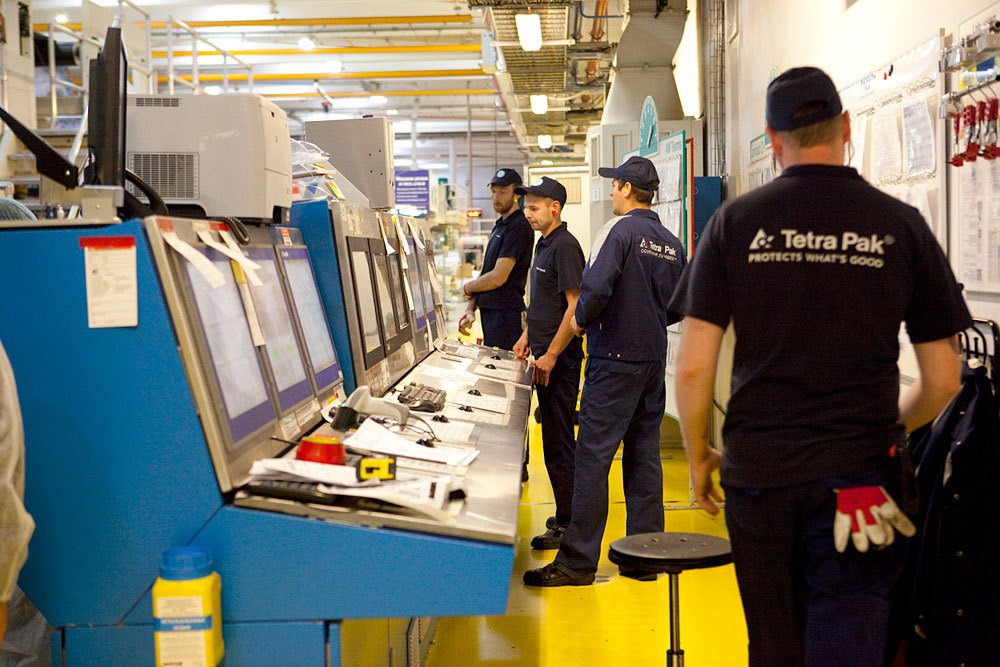
However, it was reported this week that Tetra Pak will “stop producing two-litre packaging for wine and beverages (except juices).” The reason is not even the change of position but the lack of raw materials that they are trying to find in Russia and China.
Thus, it turns out that two-litre packs of wine are the important baby foods for Tetra Pak.
Tobacco behemoths and manipulation from Imperial Tobacco
9 March could be a bad day for the russian economy. All major tobacco companies have announced their intention to limit business in Russia, and that was a matter of huge tax deductions in the russia's budget.
For example, in 2020, Philip Morris paid 4.7bn dollars in taxes, Japan Tobacco International contributed 3.6bl dollars, Imperial Tobacco paid 849mn dollars, while British American Tobacco reported 371mn dollars in taxes.
However, most companies focused on restricting investment and marketing, and some promised to stop exporting or cancel new products, as Philip Morris did.
Imperial Tobacco has the toughest position as it came forward first with the statement. The tobacco behemoth said it was suspending all operations in Russia. “This includes halting production at our factory in Volgograd and ceasing all sales and marketing activity,” the company said in its release. As it turned out next week, the release was just manipulation. Imperial Tobacco decided to transfer its assets and operations in the russian market to a local legal entity in an attempt to bypass sanctions and keep a good face.
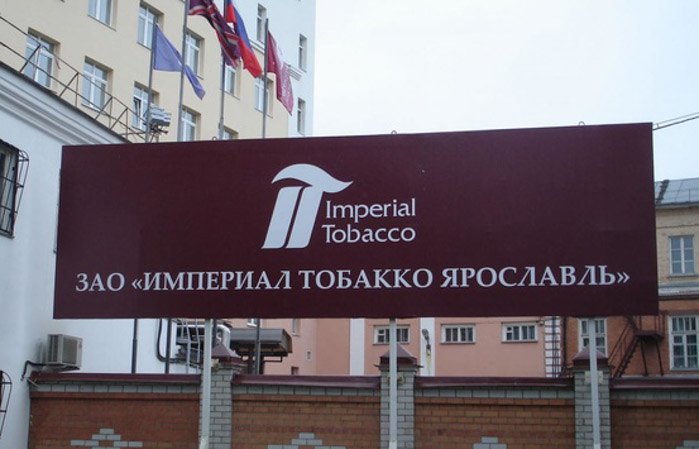
All these cases are prime examples of how companies are trying to ignore russia's murderous war against Ukraine. The whole list of these companies is much longer. The good news is that every such case is now under the spotlight of governments and the public, so the number of collaborating companies is declining every day. Accordingly, the twitter activists, communication with local politicians, the media, embassies and the protests at the headquarters are much easier to carry. Absurd statements by russian officials about the criminal liability of managers of international companies and the future nationalization of assets are also helping to convince international businesses.
And finally: my fellow deputies and I have already registered in the Verkhovna Rada a bill no.7232 on a 50% increase in taxes for those companies that remain in russia. On 30 March, the tax committee recommended that it be adopted as a basis, and therefore, it will soon be considered by the session hall. The main idea of the bill is not to raise more money for the budget of Ukraine but to introduce mirror changes at the level of the OECD and some Western countries. This will make the russian market less attractive and will be a powerful incentive for all international companies to sever toxic business ties with the aggressor state.








